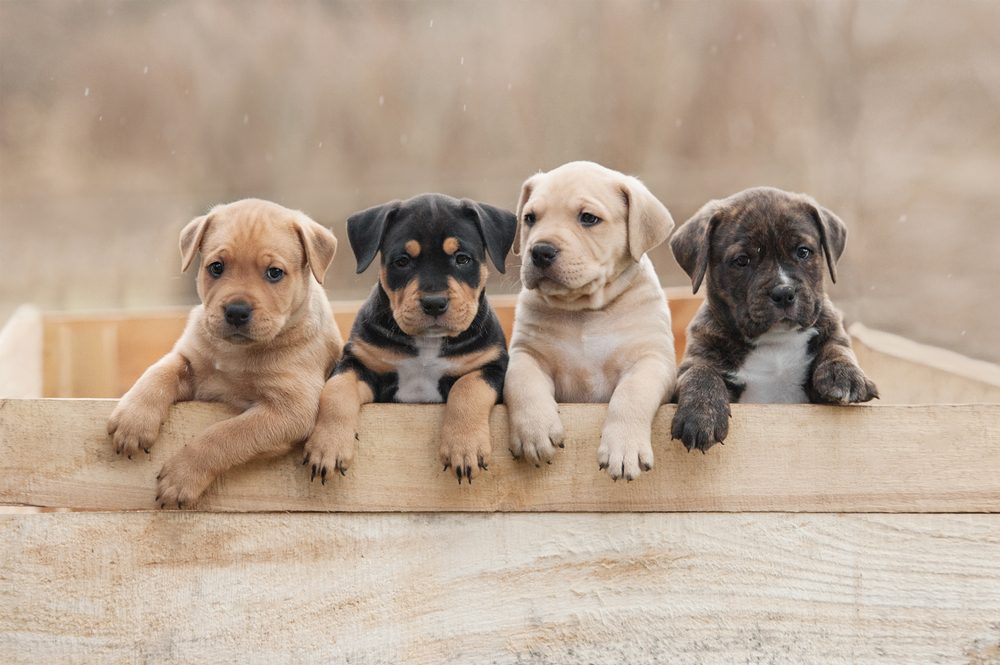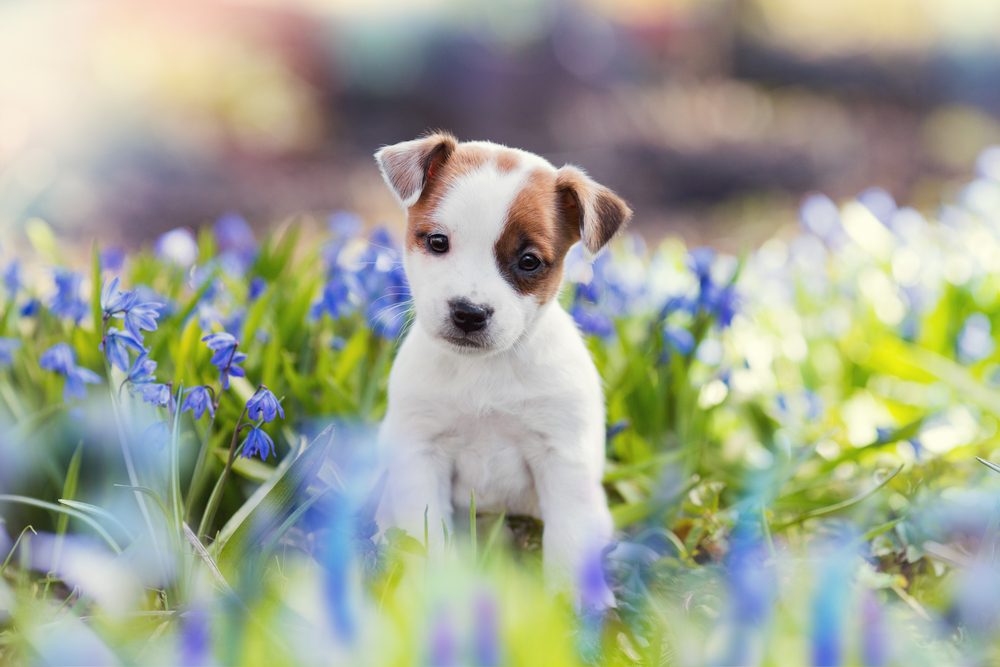If you’re thinking that your puppy is growing up too fast, we can relate. You’re not the only one wishing they could make time stand still to enjoy puppyhood just a few months longer. Yet, growing up is a natural milestone in a dog’s life — and a nice one to be part of. While the puppy stage is uniquely joyful, so are the adult years to follow.
Although your puppy changes in appearance and temperament every day, the transition from puppy to adult can be subtle. Your puppy will mature in some areas much sooner than in others. So, when is the official end of puppyhood? Here’s how to know when your good boy is now a man.

Physically
One of the easiest ways to identify an adult dog is by his physical appearance. Yet, even this is a process. Your puppy’s physical appearance begins taking on adult traits as early as his sixth month but may not completely finish until he is 2 years old. Here are common signs he’s starting to grow up.
He’s lost all his puppy teeth
Puppies have about 28 baby teeth by the time they are weaned from their mother and begin losing them when they are 12 to 16 weeks old. By the time a puppy is 8 months old, all his puppy teeth probably have been replaced with 42 adult teeth.
The good news is, that’s when the teething usually stops. Make sure your puppy has appropriate chew toys in each stage of development so that if his chewing becomes a habit when he’s a puppy, he doesn’t destroy your clothes and furniture as an adult.
His coat has changed
A puppy’s coat is one single layer of huggably soft fur. As he ages, this is replaced by a thicker, stiffer adult coat. Most puppies start losing their baby fur at 6 months of age; however, some don’t complete the process for up to two years. And losing puppy fur may be less noticeable in nonshedding breeds, like terriers and Labradoodles.
He stops growing
Depending on the size and breed of your puppy, he will reach his adult size anywhere between 1 and 2 years of age. Smaller breeds, like Chihuahuas, stop growing around age 1, while larger breeds, like golden retrievers, can continue growing for as long as two years.
Sexually
You may not think your puppy is ready to become a parent at 6 months of age, but the reality is, he’s fully equipped. At this age, your dog’s sex organs are completely developed and he can reproduce.
If your dog won’t be involved in any breeding activities, now is a good time to get him/her neutered or spayed. Not only will this prevent unwanted litters of puppies, but it also prevents the risk of developing serious health problems, such as uterine infections and breast tumors in females, and testicular cancer and some prostate problems in males.

Emotionally
Your sweet puppy will probably become a different dog around the age of 6 months, when his hormones kick in and he starts acting like a teenager. The good news? That stage, too, shall pass! Smaller dogs typically mature faster than larger dogs, but most are emotionally mature by the time they are 2 years old. Here are some signals your pup’s temperament is changing.
His attention span is longer
Puppies are constantly learning, but they have a supershort attention span. The adolescent stage, which can last anywhere from six months to two years, is another period in which many dogs find it hard to focus and pay attention. Most dogs over the age of 2 are more attentive and responsive than they were as puppies or adolescents.
He exhibits “adult” behavior
Healthy adult dogs are calm and less fearful of unfamiliar people and places. Destructive behaviors, such as chewing on clothes and furniture, have diminished. They are also less playful, don’t eat as much, and are more willing to settle down.
Of course, these are generalizations. Every dog is different. Large breeds typically mature much slower than smaller breeds, physically as well as emotionally. Even so, if you think your puppy isn’t growing like he should or exhibits concerning behavior, talk to your veterinarian or a dog behavioral specialist.
Interacting with your puppy frequently and using positive reinforcement in every stage of his development will help him grow into a happy, healthy adult dog. Although we can’t keep them puppies forever, we can shower them with the same level of love and care throughout their lifetime.


